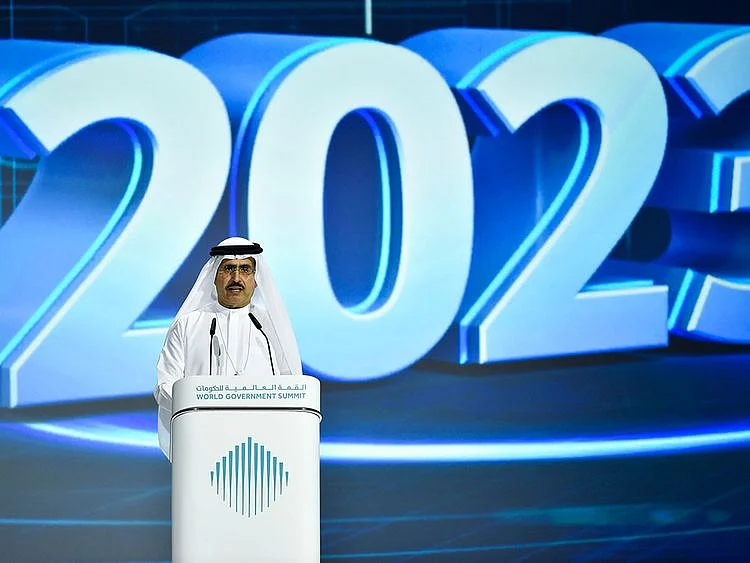DEWA retrofits 8,000 buildings in Dubai; will launch second nanosatellite this year
Dubai’s efforts in supporting global efforts to combat climate change highlighted

Dubai: As many as 8,000 buildings in Dubai have been retrofitted so far, Saeed Mohammed Al Tayer, MD and CEO of Dubai Electricity and Water Authority (DEWA), said at the World Government Summit (WGS 2023) in Dubai on Tuesday.
Speaking on ‘What we offer to COP 28,’ Al Tayer highlighted Dubai’s efforts in addressing the challenges of climate change.
“We established an energy services company to enhance energy efficiency in Dubai. The company has retrofitted nearly 8,000 existing buildings in Dubai,” said Al Tayer.
Dubai has an ambitious target of retrofitting 30,000 buildings by 2030 which will help save 1.4 Terawatt hour (Twh) of electricity and 4.9 billion imperial gallons of water and reduce 1 million tonnes of CO2 emission.
The retrofitting project could help unlock savings of more than $22 billion.
“We are also encouraging our customers through the Shams Dubai initiative to install photovoltaic solar panels on the roofs of their buildings and facilities to meet part of their energy needs. By the end of 2022, the total installed capacity of the initiative reached 500MW,” said Al Tayer.
He said DEWA has also participated in establishing the largest district cooling company in the world. District cooling uses 40 per cent less energy.
350 e-vehicle charging stations
“To promote green mobility, we launched the Green Charger initiative to establish a state-of-the-art infrastructure for electric vehicles that currently has over 350 charging stations using the latest smart and innovative technologies to provide a seamless experience for users,” said Al Tayer.
According to him, implementing the Dubai Demand Side Management Strategy contributed to reducing electricity consumption in Dubai by 17 per cent per capita and water consumption by 21 per cent per capita compared to 2010. This contributed to avoiding over 14 million tonnes of CO2 emissions in between 2011 and 2021.
DEWA SAT-2 launch this year
To enhance operational efficiency and effectiveness of electricity and water networks, the authority had launched ‘DEWA SAT-1’ nanosatellite as part of DEWA’s space programme (Space-D).
“This year we will launch DEWA SAT-2 nanosatellite. DEWA is the first utility in the world to use nano-satellites in its operations. We also make use of big data through sensors in solar power stations that gather real-time data and analyse it in conjunction with data from DEWA’s satellites,” said Al Tayer.
He explained that the UAE was the first country in the Middle East and North Africa to launch a strategic initiative to achieve net-zero carbon emissions by 2050. DEWA is pioneering in sustainability, innovation and future-shaping in all its projects and initiatives to achieve the goals of the Dubai Clean Energy Strategy 2050 and the Dubai Net Zero Carbon Emissions Strategy 2050 to provide 100 per cent of clean energy by 2050.
He also highlighted several initiatives in clean energy, digital innovations and sustainable solutions.
Sign up for the Daily Briefing
Get the latest news and updates straight to your inbox
Network Links
GN StoreDownload our app
© Al Nisr Publishing LLC 2026. All rights reserved.